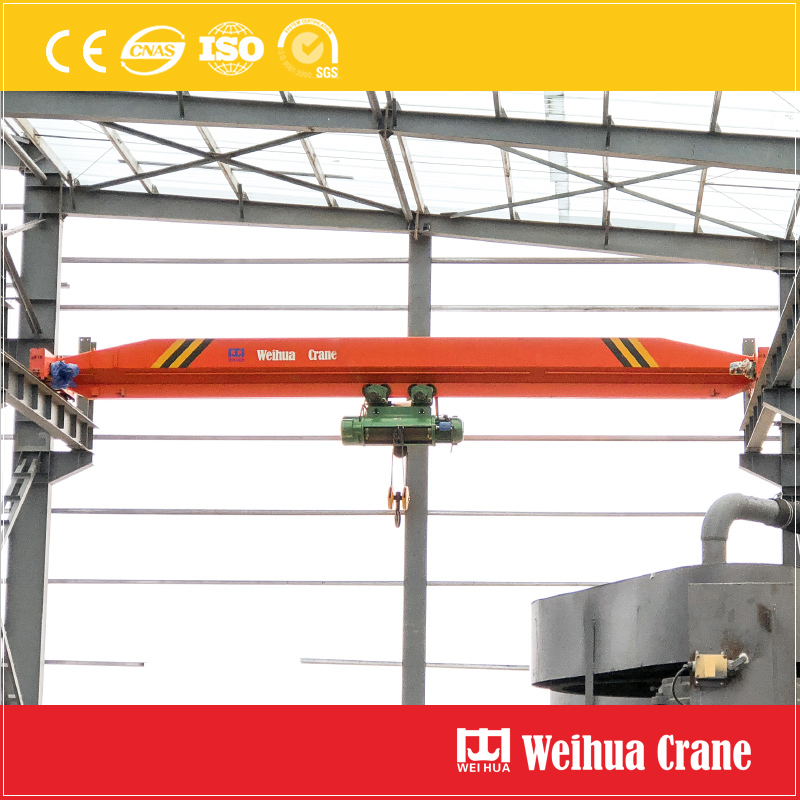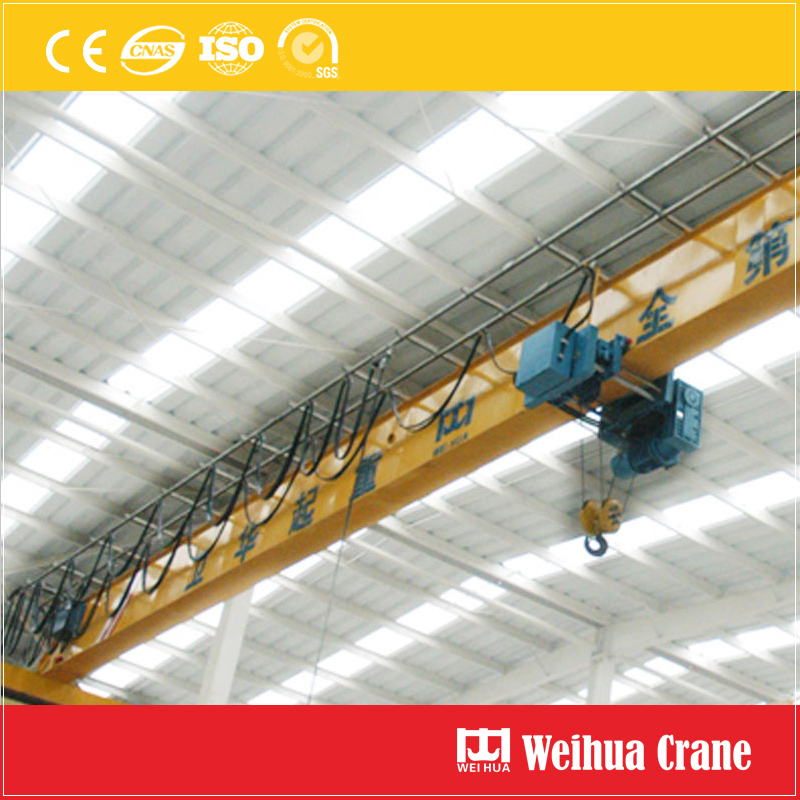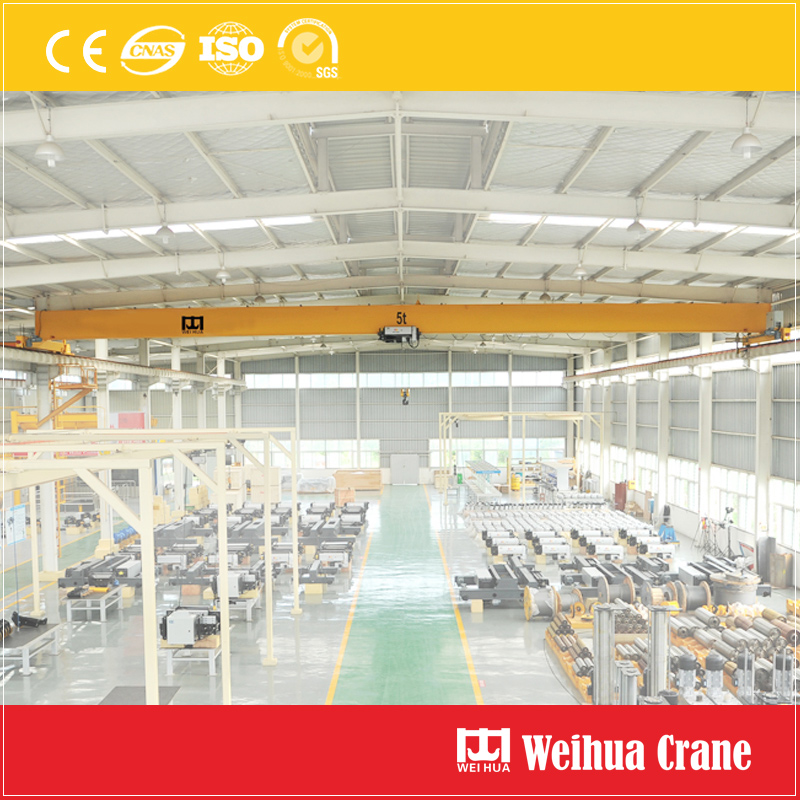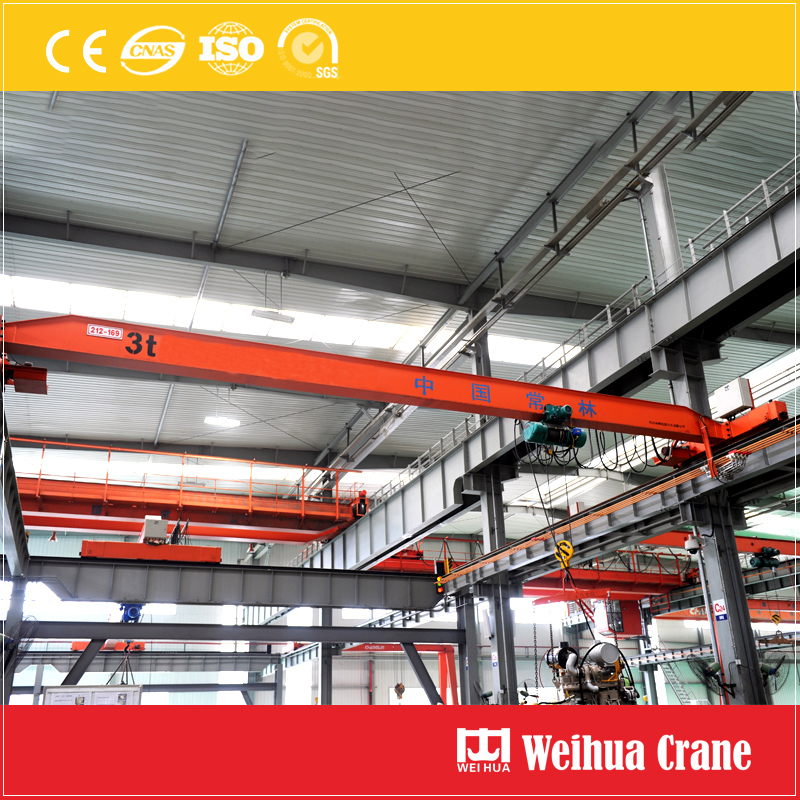Relevant organizations and large chemical companies believe that the exchange rate adjustment has a limited impact on the chemicals trade during the year
Single Girder Overhead Crane is a light duty Overhead Crane with capacity commonly under 20t, while the Max. capacity reaches 80t. Single girder overhead crane is composed of main girder, end carriage, Electric Hoist and Electric Parts. As the hoisting mechanism, electric hoist can be single speed and double speed, and the control can be pendent control or remote control. Single girder overhead crane is general purpose lifting equipment mainly fitted on workshops, warehouses, waste station, power station, steel plant, etc. for machine production line, material handling, waste handling, etc.
Weihua also provide European standard (FEM/DIN) single girder overhead crane with European standard electric hoist. European standard single girder overhead crane has modular design with light self-weight, large working space, less noise, long service life, etc.
For special industry (such as metallurgic plants), Weihua provide metallurgic use single overhead crane, insulation single girder overhead crane, explosion-proof single girder overhead crane. Or we customize cranes for your industry.
Capacity: 0.5t - 20t (Max. 80t)
Span: 7.5m - 31.5m or custom
Lift height: 6m, 9m, 12m or custom
Sling: hook, grab, magnet, clamp or custom
Packing: Wooden case, rain cloth, reinforcement rib, etc.
Weihua is a China leading crane manufacturer, we provide nothing but the right crane product and solution for you. Our products has been exported to 110 countries such as the UK, USA, Russia, Thailand, Malaysia, Egypt, Mexico, Saudi Arabia, etc. Welcome to visit us.
Single Girder Overhead Crane Single Girder Overhead Crane,Single Girder Bridge Crane,Single Girder Electric Overhead Crane,Overhead Crane With Metallurgic Hoist Henan Weihua Heavy Machinery Co., Ltd. , https://www.hoistcrane.nl
US ACC: Kevin Swift, senior director of economics and statistics at the American Chemicals Commission (ACC), said that “2% appreciation of the renminbi will not have any impact on Sino-US chemical trade this year unless the renminbi continues to appreciate. If the renminbi rises again in the next year, 10%, then the impact of Sino-U.S. chemical trade may be more apparent in 2006 and 2007. Overall, since the exchange rate adjustment is relatively small, it has little impact on the chemical industry.
Swift estimates that a 10% appreciation of the renminbi will increase the U.S. trade export value by 0.7%, while the U.S. chemical export value will be less than 0.6%. It is estimated that from 2006 to 2007, the amount of chemicals traded by the United States to China will increase by 350 million U.S. dollars per year. Since this appreciation of the renminbi is only 2%, it will not have a significant impact on the chemical trade.
BASF: BASF, the world's largest chemical company, believes that the exchange rate adjustment will have little impact on BASF's business in China.
A spokesperson for the company said: “Slight changes in the exchange rate will have little impact on our business, because for China, BASF is a net import company and our long-term goal in Asia is to serve the market with locally produced products. By 2010 The proportion of local sales of localized products in the Asia-Pacific region will increase from the current 57% to 70%. This strategy will make us even less vulnerable to fluctuations in currency exchange rates."
Tida Malaysia: A spokesman for Titan Chemicals of Malaysia stated that after China’s exchange rate reform, China’s renminbi and Malaysian ringgit (RM) were revalued. The appreciation of these two currencies will be in the future. Mid-month helps the company's business. As the company's 54.3% of its polyolefins are sold to China, a stronger ringgit means that Chinese importers will find it cheaper to purchase Tida's products.
Taiwan's petrochemical community: Most petrochemical companies in the Taiwan region believe that exchange rate reform will not affect their exports, because their product market is mainly in the mainland of the motherland. They are also concerned about how the NT will react to the US dollar after the renminbi appreciates.
The mainland of the motherland is an important petrochemical market in Taiwan. More than half of Taiwan's plastic resins are sold to the mainland of the motherland. Since most of the products sold by exporters to the mainland are settled in U.S. dollars, further appreciation of the NT will increase their costs. According to reports, a year ago, the US dollar was about 33.5 to 34 yuan against the New Taiwan dollar, and on the second day after the exchange rate reform, that is, on July 22, the US dollar rose from 32 yuan to 31.7 yuan. Some manufacturers believe that since the first two years of talking about the appreciation of the renminbi, the NT has been rising, so this time there is limited room for growth.
Exchange rate reform is good news for many Taiwanese companies that follow downstream customers and set up production bases on the mainland. For example, Formosa Plastics recently launched a PVC plant in Ningbo, Zhejiang Province, which will benefit from the company’s purchase of VCM raw materials from Taiwan in US dollars and sales of products in RMB.
Analysts believe that the RMB exchange rate adjustment will make investors invest more carefully in mainland China, but will not dispel future investment plans. Investors should consider how exchange rate changes will affect their ability to compete, rather than just considering labor and land cost factors.




